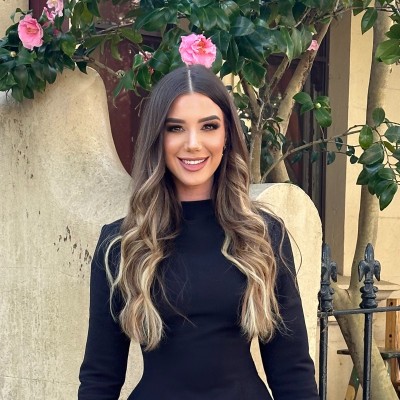The glamorous life of an Instagram influencer would appear to most as an easy one. The idea of being able to snap a happy picture with some hair vitamins, throw a falsified review and a few hashtags in the caption, and be paid hundreds or thousands of dollars to do so seems like an ideal career. No nine to five routine, no horrible customers, and to be frank, no necessary skills. In all fairness, an influencer’s job isn’t limited to only taking pictures with their sponsored gifts. Sometimes they go on holidays and take pictures there, too.

However, what happens when the content that originally turned these regular people into influencers with thousands – if not millions – of followers, no longer interests the fans who got them there in the first place? As the pool of influencers begins to overflow and clog up our feeds, the typical content produced by said group becomes less enticing to the average person. Why? Because it has all been done before. This lack of originality is often what depletes an influencer’s career – fans and followers begin to see through the glamorous shots and #sponsored posts, and realise that there is absolutely nothing original being offered. Some influencers overcome this issue by adding a little more to their content, showcasing their most interesting personality traits through the captions, replies, and the photos themselves. Others tend to ignore the issue until it goes away – unless their career depletes first.
Last month, an Instagram influencer by the username “Arii” put her followers on blast for not supporting the launch of her clothing line. Despite boasting over 2.6 million followers, the influencer supposedly failed to sell more than 36 items from her line (which she blamed almost entirely on her fans and followers). In a now deleted post, the 18-year-old stated that she needed to sell at least 36 pieces of clothing in order for the company she chose to work with to process the order and create the products, but that she was confident based on fan feedback. She concluded her post with a not-so-subtle, “no one has kept their word so now the company wont be able to send out the orders to people who actually bought sh*t”, which reiterates the fact that she was unable to sell that amount.
https://www.instagram.com/p/Bx-kf-dnRDx/?utm_source=ig_web_button_share_sheet
While it’s disheartening to see any sort of small business fail, the expectations held by influencers that their followers will just purchase anything they promote is dismal. For many, the idea of buying a product based solely on the recommendation of an influencer who was paid to endorse it is absurd. By looking deeper into Arii’s feed, it is almost understandable as to why the brand didn’t work out. Amongst her posts of cute outfits and aesthetic backdrops, there were only three posts regarding her launch – a product announcement video, one promo post wherein she isn’t even wearing her own brand, and lastly, the announcement that the launch had failed. On top of this, despite most of her followers likely sticking around due to general interest in the aesthetic that she promotes on her page – of which is mostly cute, pastel pieces – the aesthetic of her clothing line was something entirely different. This could have still intrigued her followers – and may have even drawn more attention to the originality of the brand as these pieces would likely stand against her otherwise dainty feed – however it appears as though no attempt was made to showcase interest in her own brand.

However, regardless of the lack of advertisement and the conflicting aesthetic of her page and brand, the other content that surrounds these posts may be what really caused her demise. While Arii maintains the “look” of an Instagram influencer, her page lacks any real personality or reason for being – and most importantly, she lacks any sort of engagement with her audience. When scrolling through her feed, there is no way to get to know the person behind the account, unfortunately limiting her ability to connect to her 2.6 million followers. While clothing brands don’t necessarily need a personality to sell their clothes, evolving your brand based off your success as an Instagram influencer will likely mean you do – otherwise, none of those followers have any reason to support you.

Personality and engagement is proven to be a crucial part of launching a brand as an Instagram influencer. Brittney Saunders is another Instagram influencer who, while maintaining an aesthetically pleasing feed, continuously allows her personality to shine through based on her captions and positive engagement with her fans and followers. Similarly, this influencer also chose to launch her own brand, using her page as a promotional tool to create hype and showcase her products using herself as a model. Brittney successfully marketed her products in a way that Arii did not – continuous promotion of her products, creating products that match her feed’s aesthetic, and of course, creating strong relationships with fans that ultimately make them want to support her endeavours.
In the end, being able to properly promote anything using social media as a marketing tool is a skill – one that needs to be learned, developed, and utilised effectively. With the large influx of influencers over the years, individuality and unique personality should be held to the same standard as aesthetics in order for fans to truly support their favourite influencers. Otherwise, large followings may not be as easily influenced as they once were.


